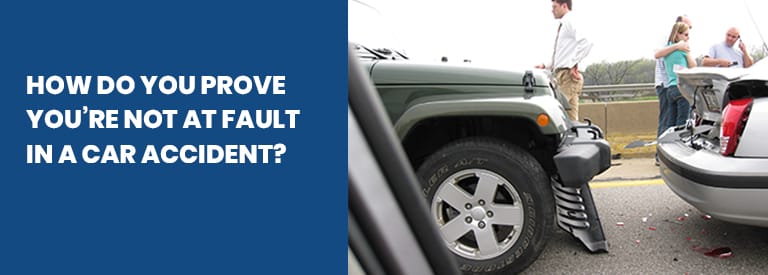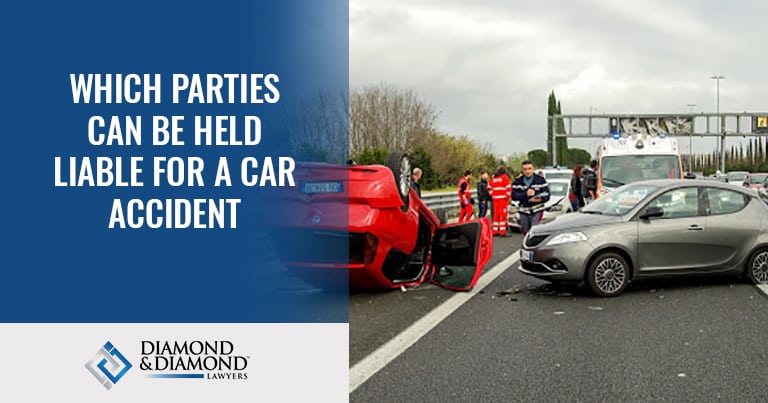Whether you saw it coming or merely felt the impact, the result is always the same. For a brief moment, you’re stunned with utter confusion, and then the reality sets in – you were in a car accident.
With this realization comes many questions. The two most prominent being: what happened and who’s at fault?
According to common law, the driver of the vehicle that caused the accident is, in general, liable for all damages incurred during the crash. Yet, that isn’t always the case. If the driver isn’t the automobile owner, you may have to claim damages from more than one individual. It depends on the unique circumstances of each case.
Obtaining an experienced lawyer’s services can help you sort out the details and protect your rights after an accident.
What Makes Someone Liable in a Car Accident?
The fault for causing a car or motorcycle accident is either defined by common law or created by law. The former recognizes four primary levels of liability:
- Negligence: Causing injury or damage to another as a result of a failure to take reasonable precautions
- Recklessness: Wanton conduct, such as driving under the influence
- Intentional misconduct: Willful or malicious disregard of the safety and rights of another
- Strict liability: As the claimant, you need only prove that the accident occurred and that the defendant was at fault
Common law states that individuals who are responsible for causing a car accident are guilty of committing a tort: a private injustice toward another, but one that doesn’t rise to a criminal level. Those guilty of this misconduct are legally referred to as tortfeasors, an important aspect to be aware of should you decide to sue someone for collision and injury liability.
Proving Car Accident Liability
To prove car accident liability, you’ll need to gather as much evidence at the scene as possible to present to your insurer or in a lawsuit, including:
- Police reports: If the police show up at the scene, be sure to obtain a copy of the police report from the attending officer after it’s filed
- Traffic laws: These laws, or vehicle codes, are freely obtainable from your local DMV or online. Get the exact wording of the regulation in question to relay it to your insurance or lawyer
- No-doubt liability
- Rear-end collisions: Should a car hit you from behind, it’s hardly ever your fault. As per basic driving rules, you’re supposed to leave enough room between you and the next vehicle to react should the person in front of you stop abruptly
- Left-turn accidents: These collisions are nearly always the fault of the driver who’s making the left-hand turn. As per basic driving rules, cars heading straight into the intersection typically have the right of way
What Happens If You Are at Fault in a Car Accident?
Should you be involved in an accident for which you’re responsible:
- Your insurance will pay for the damage if your policy includes collision or all perils coverage (Section B of the policy), but you’ll have to pay the deductible amount.
- If you’ve only got liability coverage (Section A of the policy), you’ll be responsible for the full cost of the repairs.
Furthermore, if you’re guilty of causing an accident in Alberta, you may face severe consequence from your insurance provider:
- Your premiums may increase due to the at-fault claim
- You may be subject to an additional surcharge due to your driving record reflecting a vehicle accident ticket
How Do You Prove You’re Not at Fault in a Car Accident?

To prove you’re not at fault for a car accident, you must:
- Never admit guilt
- Gather physical evidence
- Photograph the damage on both vehicles
- Keep all details
- Research traffic laws
- Obtain an accurate police report
| Types and examples of negligence and time limit to file a claim |
| Types of negligence |
- Contributory negligence – Refers to the plaintiff’s contribution to his or her own damages
- Comparative negligence – Revolves around the injured party’s negligence alongside the defendant’s
- Gross negligence – Refers to a reckless disregard or indifference for the safety of others
- Vicarious liability – Concerns the legal responsibility an entity or person has over the negligence of another within its control or jurisdiction
|
| Examples of negligence |
- DUI – Driving under the influence of drugs or alcohol
- Driving while fatigued
- Failure to properly maintain your vehicle
- Distracted driving, such as texting
- Aggressive driving behavior
- Violating or ignoring traffic signals
- Exceeding the speed limit
|
| Best time to file a car insurance claim |
You should contact your insurer as soon as possible after your vehicle was involved in a collision, stolen, vandalized, or damaged by a natural disaster |
Are you responsible for a car accident in Alberta? Do you have any questions? Feel free to reach out to one of Diamond & Diamond Law’s personal injury lawyers.


